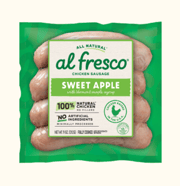A pinch of history and a dash of culture: The stories behind your favorite food idioms
By
Veronica E.
- Replies 0
Food isn’t just something we enjoy at the table—it’s also baked into the way we speak.
Over the years, it’s become a key ingredient in how we express affection, share wisdom, and even make sense of life’s challenges.
From sweet terms of endearment to old-fashioned sayings passed down through generations, food idioms add color, warmth, and familiarity to everyday conversation.
They connect us to family traditions, regional culture, and a shared sense of humor—often without us even realizing it.
But have you ever stopped to think about where these expressions come from?
Many of them have surprising backstories—some rooted in history, some born from cultural shifts, and others shaped by everyday experiences of the past.
Here’s a closer look at seven familiar food-related sayings, each with a story that’s as rich and satisfying as a home-cooked meal.

This sweet phrase has nothing to do with fruit.
It originally referred to the pupil—the most protected part of the eye—and symbolized something deeply cherished.
It appears in both the King James Bible and Shakespeare’s works, reminding us that the people we love most are as precious as our sight.

While it may sound like breakfast, this saying actually dates back to medieval England, where churches awarded pork to couples who lived in harmony.
It later became popular in the boxing world, as a way to describe winning prize money.
Today, it’s all about earning a living—and the satisfaction that comes with it.
This idiom highlights innovation we often overlook.

In the 1920s, the invention of the bread-slicing machine revolutionized American kitchens.
Now, when we say something is “the best thing since sliced bread,” we’re giving it the highest praise for making life easier and more enjoyable.
This well-known piece of advice encourages us not to rely on just one plan or source.
The idea dates back to a Spanish proverb and was even featured in Don Quixote.
Like a good investment strategy, it reminds us that a little variety adds stability.
This saying paints a picture of comfort and ease.
It likely came from railroad slang, where an easy, high-paying job was considered “gravy.”
It now describes any situation that’s smooth, profitable, and hard to walk away from—just like a side of gravy you didn’t know you needed.
This expression suggests healthy skepticism.

It dates back to ancient times, when salt was believed to make medicine more palatable.
Today, it reminds us not to believe everything we hear and to approach certain claims with caution—and maybe a little curiosity.
This one has heavier roots.
Often linked to French general François de Charette, the phrase was used to justify sacrifices made during times of revolution.
These days, it’s a reminder that progress often comes with difficult choices, even if we use it in much lighter situations.
Food idioms do more than just spice up our language—they connect us to history, culture, and each other.
Whether you’re describing someone you adore or offering sound advice, these phrases carry stories that stretch far beyond the dinner table.
Read next: Step back in time: Can you pass this 1920s word challenge?

Do you have a favorite food expression you use often? Have you ever looked into where it came from? Share your stories, thoughts, or new idioms you’ve discovered in the comments—we’d love to hear what’s been simmering in your language pot!
Over the years, it’s become a key ingredient in how we express affection, share wisdom, and even make sense of life’s challenges.
From sweet terms of endearment to old-fashioned sayings passed down through generations, food idioms add color, warmth, and familiarity to everyday conversation.
They connect us to family traditions, regional culture, and a shared sense of humor—often without us even realizing it.
But have you ever stopped to think about where these expressions come from?
Many of them have surprising backstories—some rooted in history, some born from cultural shifts, and others shaped by everyday experiences of the past.
Here’s a closer look at seven familiar food-related sayings, each with a story that’s as rich and satisfying as a home-cooked meal.

From “bringing home the bacon” to “the apple of your eye,” food idioms bring flavor and history to the way we speak every day. Image Source: Pexels / Pixabay.
1. “The apple of your eye”
This sweet phrase has nothing to do with fruit.
It originally referred to the pupil—the most protected part of the eye—and symbolized something deeply cherished.
It appears in both the King James Bible and Shakespeare’s works, reminding us that the people we love most are as precious as our sight.

Once used to describe the pupil of the eye, this timeless phrase now symbolizes someone dearly loved and cherished. Image Source: Pexels / Engin Akyurt.
2.“Bringing home the bacon”
While it may sound like breakfast, this saying actually dates back to medieval England, where churches awarded pork to couples who lived in harmony.
It later became popular in the boxing world, as a way to describe winning prize money.
Today, it’s all about earning a living—and the satisfaction that comes with it.
Also read: Words of wisdom go a long way: Watch how Denzel Washington’s advice changed a life
3. “The best thing since sliced bread”
This idiom highlights innovation we often overlook.

A symbol of modern convenience, sliced bread inspired the popular idiom used to praise everything from gadgets to great ideas. Image Source: Pexels / Antoni Shkraba Studio.
In the 1920s, the invention of the bread-slicing machine revolutionized American kitchens.
Now, when we say something is “the best thing since sliced bread,” we’re giving it the highest praise for making life easier and more enjoyable.
4. “Don’t put all your eggs in one basket”
This well-known piece of advice encourages us not to rely on just one plan or source.
The idea dates back to a Spanish proverb and was even featured in Don Quixote.
Like a good investment strategy, it reminds us that a little variety adds stability.
Also read: History is made—The first American Pope’s speaks his first words to the world
5. “Riding the gravy train”
This saying paints a picture of comfort and ease.
It likely came from railroad slang, where an easy, high-paying job was considered “gravy.”
It now describes any situation that’s smooth, profitable, and hard to walk away from—just like a side of gravy you didn’t know you needed.
6. “Take it with a grain of salt”
This expression suggests healthy skepticism.

From ancient remedies to modern wisdom, a “grain of salt” reminds us to approach information with a healthy dose of skepticism. Image Source: Pexels / Lorena Martínez.
It dates back to ancient times, when salt was believed to make medicine more palatable.
Today, it reminds us not to believe everything we hear and to approach certain claims with caution—and maybe a little curiosity.
7. “You can’t make an omelet without breaking eggs”
This one has heavier roots.
Often linked to French general François de Charette, the phrase was used to justify sacrifices made during times of revolution.
These days, it’s a reminder that progress often comes with difficult choices, even if we use it in much lighter situations.
Food idioms do more than just spice up our language—they connect us to history, culture, and each other.
Whether you’re describing someone you adore or offering sound advice, these phrases carry stories that stretch far beyond the dinner table.
Read next: Step back in time: Can you pass this 1920s word challenge?
Key Takeaways
- Food idioms like “bringing home the bacon” and “the apple of your eye” have deep historical and cultural roots that add meaning to everyday language.
- Many of these expressions come from surprising sources, including religious texts, medieval traditions, and historical figures.
- Phrases like “don’t put all your eggs in one basket” and “take it with a grain of salt” offer timeless wisdom that still applies today.
- These idioms continue to enrich American English by blending humor, history, and life lessons into how we speak and connect with others.
Do you have a favorite food expression you use often? Have you ever looked into where it came from? Share your stories, thoughts, or new idioms you’ve discovered in the comments—we’d love to hear what’s been simmering in your language pot!






